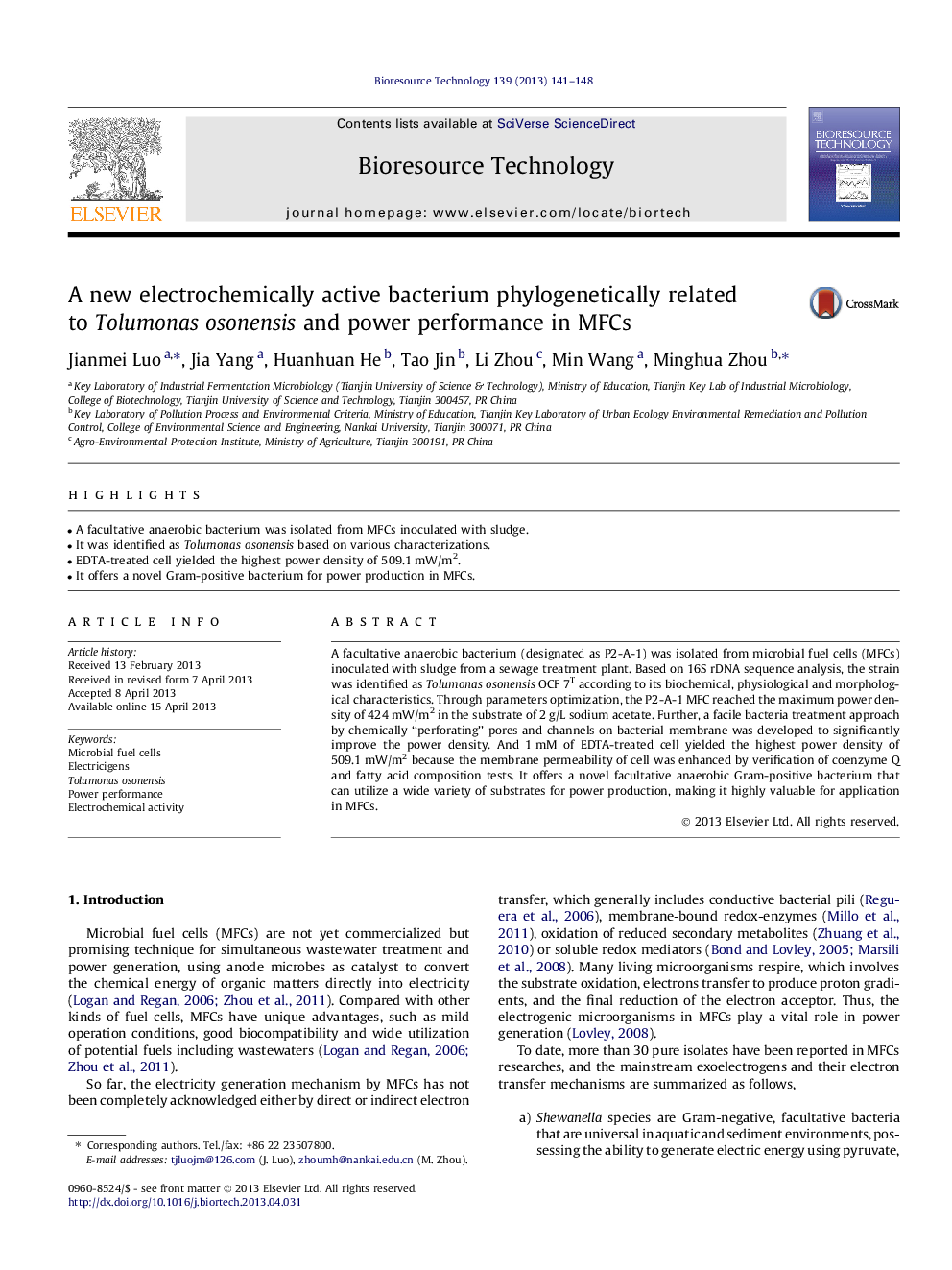| Article ID | Journal | Published Year | Pages | File Type |
|---|---|---|---|---|
| 7082361 | Bioresource Technology | 2013 | 8 Pages |
Abstract
A facultative anaerobic bacterium (designated as P2-A-1) was isolated from microbial fuel cells (MFCs) inoculated with sludge from a sewage treatment plant. Based on 16S rDNA sequence analysis, the strain was identified as Tolumonas osonensis OCF 7T according to its biochemical, physiological and morphological characteristics. Through parameters optimization, the P2-A-1 MFC reached the maximum power density of 424Â mW/m2 in the substrate of 2Â g/L sodium acetate. Further, a facile bacteria treatment approach by chemically “perforating” pores and channels on bacterial membrane was developed to significantly improve the power density. And 1Â mM of EDTA-treated cell yielded the highest power density of 509.1Â mW/m2 because the membrane permeability of cell was enhanced by verification of coenzyme Q and fatty acid composition tests. It offers a novel facultative anaerobic Gram-positive bacterium that can utilize a wide variety of substrates for power production, making it highly valuable for application in MFCs.
Related Topics
Physical Sciences and Engineering
Chemical Engineering
Process Chemistry and Technology
Authors
Jianmei Luo, Jia Yang, Huanhuan He, Tao Jin, Li Zhou, Min Wang, Minghua Zhou,
